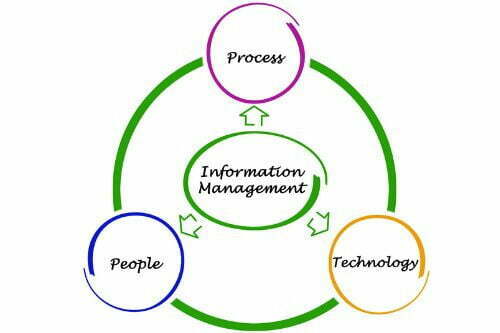Table of Contents
MBA is quickly becoming one of the most popular post-graduate courses for people from any stream. Graduates from the MBA discipline can work in a variety of industries. Several prestigious MBA universities throughout the world provide high-quality MBA programs. These programs range from full-time degrees to integrated MBA programs, part-time and executive MBA courses, and online courses. Before you begin the course, it is important to know more about the MBA subjects in detail. Read the blog to know more.
Customer relationship management
Without efficient and effective customer relationship management, no organization can compete in today’s market. This MBA subject will help you discover more about how to develop brand loyalty among your current
consumers. You’ll also discover new tactics for attracting potential consumers and clients to purchase your items or subscribe to your service.
Information management

This MBA subject can be defined as the application of technology to improve management systems. This topic combines management and technology, therefore students interested in this career should be tech-savvy. The applications of the technology are continually changing with steady advancements. As a result, we may employ technologies for better administration in any industry by utilizing vast volumes of data. IT strategy, data mining, digital innovation and transformation, IT consulting, managing software projects, e-commerce, and digital marketplaces are all subjects covered in this MBA course.
Finance
Finance is the branch of economics that deals with money management. Personal finance, governmental finance, and corporate finance are the three areas in which this subject may be classified. Taxation, budgeting, corporate restructuring, derivatives, portfolio management, investment research, financial services, and financial markets are all topics covered in this MBA subject. Finance is a crucial aspect of every firm, hence this is an important specialization.
Marketing
This is one of the most popular MBA subjects. Marketing is an important aspect of every business that sells products or services. Marketing is concerned with creating, pricing, distributing, and promoting a product or service. Consumer behavior, market research, digital marketing, social media marketing, brand creation, sales management, and retail management are all topics that marketing students must learn about. This specialization can lead to multiple career opportunities.
Financial management

The field of finance is one of the fundamental disciplines you’ll need to master as part of your MBA program. You will learn more about budgeting corporate resources and how to handle the finances given to you effectively. This MBA subject will teach you how to calculate financial measures to determine profitability, liquidity, and efficiency. Financial management will also help you understand how to use debt ratios, market ratios, and capital budgeting ratios.
IT Management
Information Technology (IT) is becoming increasingly prominent each year. IT covers the many technologies that firms employ in their everyday operations. Because more MBAs are being hired by IT organizations, computing skills are becoming an increasingly important aspect of an MBA graduate’s resume.
Product and change management, as well as product innovation, are a few topics in the syllabus. You’ll learn how to use technology to help you make better business decisions and gain a competitive advantage.
Data analytics is also included in the MBA IT curriculum, which is something that future business managers will need to know.
The core MBA curriculum, when taken as a whole, gives you a comprehensive understanding of a business, as well as the foundational information you’ll need to advance through the rest of the program.
Strategic management
The basic MBA subject list also contains a strategy component, in which you’ll learn how to make informed decisions based on an organization’s resources and objectives while steering it toward its goals. Becoming a strategy specialist is a wonderful approach to starting a consulting career.
Classes include the principles of strategic planning, such as industrial economics, a company’s strategic positioning regarding rivals, and the capabilities of its resources.
By the end of the MBA strategy course, you’ll be able to assess a company’s strategy and design your own to obtain a competitive market edge.
Economics
Basic economic principles must be understood by business people. The core ideas of microeconomics, such as markets, supply & demand, competition, strategic interactions, and public policy, are frequently covered in economics courses. Participants will learn how to make decisions and develop plans while considering the local and global business environment. Managers who want to maximize their company’s worth must not only know their markets but also be able to forecast future financial events.
Operational management
Operational management will be a primary focus in many MBA programs.
The major goal of MBA students studying this topic is to prepare them to deal with a variety of challenges and concerns that emerge throughout operating a business, such as productivity, quality, capacity, supply chains, and so on.
Human Resource management

This MBA subject will teach you how to manage a team as well as the workforce of a company as a whole. You will have a better grasp of contemporary labor rules that safeguard both the employee’s and the company’s welfare. Human resource management may also assist in enhancing the likelihood of employee recruitment and retention.
What we have to say
- An MBA will open doors to a world of possibilities and propel your career to new heights.
- If you pick the appropriate specialization early on, you will not only acquire a competitive advantage, but you will also reap additional rewards in the future.
- Finance, marketing, HR, operations, and entrepreneurship are some of the most popular and top MBA specializations, and many students believe them to be the safest.
Liked the blog? Comment below and share your thoughts with us!
Liked this blog? Read next: Top 10 MBA programs in USA | Rankings, fees, salaries, and more!
FAQ’s
Q1. Will the syllabus for MBA specializations vary?
Answer – The syllabus will remain the same for the first semester. The topics for the second and third semesters will depend upon the specialization chosen by you.
Q2. How many subjects are there in MBA?
Answer – There are 11 core subjects in MBA and 35 elective subjects.
Q3. How many hours does an online MBA require you to commit?
Answer – You are required to commit 12 to 15 hours a week to an online MBA.






